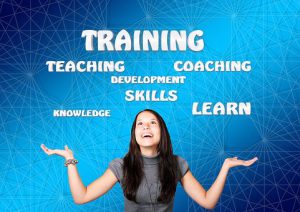Coaching vs. Mentoring? – What’s the difference…and how to find the best fit for you.

“Help, I need somebody, Help, not just anybody, Help, you know I need someone, help!”
– Lennon/McCartney.
In the world of business you’ll undoubtedly come across a multitude of people willing to help you. While this may be welcome news, it can also be quite confusing, working out who is best placed to support you and your particular business need.
You’ll probably meet consultants, coaches, mentors and advisors. And some will profess skills in more than one of these areas, perhaps offering their services as a mentor/coach or even something which sounds a little more ‘niche’, sales coach, growth specialist, business advisor etc.
While many of these terms sound interchangeable, it’s important to realize there are key differences between mentoring and coaching. Both can be extremely beneficial, depending on what your particular need is and where you are on the journey to develop your business.
Perhaps a key phrase to help differentiate between the two is that a good mentor will have some great answers for your questions, whereas a good coach will have some great questions for your answers.
This may sound overly simplistic, but is generally accurate. Mentoring usually involves the giving of expert advice, guidance and valuable knowledge, often gained over a long time by the mentor through doing precisely what you’re doing, i.e. running a business.
In mentoring, the calibre and experience of the mentor themselves is particularly important. The mentor needs to have great communication skills, sound business knowledge, and practical experience. A good mentor is willing to teach what he or she knows and accept the mentee where they currently are in their own professional development.
While mentoring is often about passing on advice, the value of simply having a wise support who you can go to with your issues and who will listen and offer appropriate guidance can be of immense benefit, particularly where people may lack experience or specialist knowledge.
In coaching, the need for words of wisdom or expert guidance from the coach is less. Coaching seeks to identify and maximize the existing skills, knowledge and experience of the individual and then help them use these to perform at their best, confidently and with increased clarity and focus.
To do this successfully, there has to be a close working relationship between both parties. So a good coach will be a skilled rapport builder, an excellent listener, asking powerful questions that will help the client to really explore their motivation, find their personal ‘why am I doing this?’ and then feel fully empowered to take action.
It’s generally less important for a coach to have specialist expertise or experience of the business you’re in. They may have and that can help in them empathizing with your particular requirements. However, sometimes it can be an advantage in being supported by a professional who is not acquainted with your industry, as an impartial, fresh perspective can often bring its own advantages.
Both coaches and mentors will not only help you find solutions to problems, but are also interested in your long-term development, often meaning that the relationship grows over a longer time.
Both will be there for you, to listen when things aren’t going so well and support and encourage you to overcome hurdles. They’ll be your best advocate, but also won’t shrink from holding you accountable to the things you’ve committed to do!
So, mentor or coach? How do you decide? Often, that depends on where you are with your current skills, knowledge or experience. Sometimes, a person new to business will want to gain knowledge quickly, they may need to know how to raise finance, get to grips with social media or find the swiftest way to market their products and services. In these cases, working with a mentor can be the best way to fill gaps in expertise, particularly if the mentor has experience working with your type of business.
In other instances, you may feel you have many of the skills and experience you need, but perhaps are not sure how you want the business to look in the future, what direction you should take, or how to really ensure you bring your ‘A’ game to work. You may find there is something holding you back or that you’re struggling with getting your priorities right. In this example it may be that working with a coach will help you unpack your own answers and move forward with renewed purpose.
However, these are just examples and the differences between mentor and coach is not an exact science. Undoubtedly, the most effective way of finding the support that suits your need is to talk to both. Most will be more than willing to fully outline how they work and what they offer, many offer no-cost ‘discovery’ sessions, so you can ‘try before you buy’!
People buy people, especially in the service industry, so it’s vital that whether you choose a mentor or a coach, you actually get on with them, trust them and can see yourself really opening up to them to enable them to give you the best possible help.
Don’t be afraid to ask them how they work, check out who else they’ve worked with, what results they got and who would recommend them. You’ll often find these on their website or LinkedIn profile, but you need to talk to them, too!
One thing is for certain; the majority of successful people in business have only succeeded with support. And finding the right help can go a long way in helping you to achieve your business goals and ambitions.


